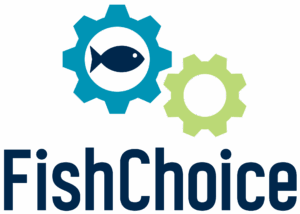Fishery Improvement Projects (FIPs)
Bringing Social Responsibility into View: The Role of FIPs and FisheryProgress in Human Rights Due Diligence
Written by: Jamie Padilla, Director of Strategic Engagement, FishChoice


Fishery improvement projects
Fishery improvement projects serve as testing grounds for integrating social responsibility into seafood sustainability. Through the FisheryProgress platform, FIPs are reporting on labor risks, fisher engagement, and grievance mechanisms. These reports offer rare visibility into working conditions in both small-scale and industrial fisheries. As buyers and stakeholders seek tools to support human rights due diligence, FIPs may help inform more continuous, transparent approaches across the sector.
As expectations around human rights due diligence (HRDD) grow more defined, some of the most significant developments in the seafood sector are emerging within existing tools that are being adapted to meet new demands. Fishery improvement projects (FIPs), historically focused on environmental performance, are increasingly incorporating human rights in ways that are beginning to shape how due diligence is applied in practice. FisheryProgress—the primary platform for tracking FIP progress—has evolved to reflect this shift, now providing structured, publicly accessible data on how fisheries are assessing, addressing, and reporting on labor risks and working conditions.
This growing body of reports is helping to build a more nuanced and dynamic picture of risk and progress across diverse contexts. The diversity of FIPs—ranging from small-scale coastal fisheries to large, distant water fleets—makes this work both complex and instructive. Not all FIPs are equally resourced or equally advanced, and their levels of buyer engagement vary, but taken together, they offer an increasingly rich source of insight into how social responsibility can be integrated into improvement efforts across the sector.
Fishery Progress Platform
Under FisheryProgress’s Human Rights and Social Responsibility (HRSR) Policy, all FIPs are required to meet a baseline of transparency and worker engagement. This includes:
- Publishing a list of participating vessels
- Signing and publicly posting a statement of commitment to social responsibility, endorsed by key FIP participants and supply chain partners
- Assessing and publishing information about fishers’ access to grievance mechanisms and remedy
- Designing and implementing activities that directly engage fishers on their rights
- Disclosing whether or not the fishery operates in a high-risk context
- Publishing up to date FIP workforce characteristics
FIPs identified as operating in high-risk contexts must take additional steps, like:
- Conducting a comprehensive social risk assessment, such as through the Social Responsibility Assessment (SRA) Tool
- Developing and publishing a time-bound work plan to address identified risks
- Reporting on progress on that work plan every six months
This structure encourages transparency about both achievements and ongoing challenges. The aim is not to offer a judgment or provide a compliance checklist, but to reflect continuous improvement, and to support a more informed dialogue between FIPs, buyers, and other stakeholders.
Resources for Human Rights Due Diligence
While FIPs were not originally designed as HRDD tools, many are now generating insights that align closely with due diligence priorities. Through structured assessments, fisher input, and ongoing updates, FIPs can provide valuable data on the presence of risks and the efforts underway to address them.
FIPs can support your HRDD program by complementing other sources of data such as audits, self-assessments, third-party impact assessments, or on-the-ground research. Consider reviewing the Collect & Assess step of the RISE Roadmap to see other ways that FIP data and FisheryProgress information can be integrated into your HRDD program. In particular, FisheryProgress offers:
- Visibility into risk identification and response efforts over time
- Public documentation of challenges as well as corrective actions
- Opportunities to engage with implementers to strengthen practices or coinvest in solutions
- Contextual detail often missing from other sources, especially in fisheries with limited formal oversight
The platform is evolving to offer improved navigation, clearer timelines, and standardized reporting templates that make it easier to compare and interpret information across fisheries.
Role of Buyer Engagement
As more FIPs take on human rights reporting, the role of buyers becomes increasingly important. To date, buyer engagement around human rights issues in FIPs has been less consistent than engagement around environmental performance. While a drop in environmental progress rating may trigger immediate concern or follow-up, social reporting often receives less scrutiny, even when risks are clearly documented.
That dynamic is starting to shift. As due diligence frameworks mature and regulatory expectations rise, more sourcing teams are beginning to look closely at how human rights risks are managed, not just certified or disclosed. FIPs that are transparent about their challenges and committed to addressing them offer a starting point for deeper engagement and shared responsibility.
Strengthening engagement—through questions, support, alignment, or sourcing incentives—can help FIPs sustain and expand their efforts, while giving buyers a clearer view of how labor issues are evolving in the fisheries they source from. The Engage step of the RISE Roadmap can provide guidance on how to work with FIPs for long-term sustainability, better transparency, and increased HRDD impact.
Ongoing Engagement and Fishery Improvement Projects
FisheryProgress is not a certification system, nor is it designed to offer definitive assessments of working conditions. But it has become one of the most structured and transparent sources of social data in the seafood sector.
One of the clearest lessons emerging from FIP reporting is the value of public commitment, structured risk assessment, and transparent, ongoing updates. This combination—where key stakeholders endorse human rights goals, identify risks through formal assessments, and report progress over time—offers a practical framework that could inform approaches beyond the FIP context. It’s especially relevant given a persistent challenge in the sector: Once a fishery becomes eco-certified, human rights reporting often stops, even as risks may remain.
Rather than viewing FIPs as isolated cases, there is an opportunity to learn from the model they offer. The structured engagement, transparency, and continuous improvement framework built into FisheryProgress could help inform new approaches to HRDD in eco-certified fisheries and beyond. What’s emerging through FIPs is not a finished solution but a foundation for what more inclusive, integrated, and accountable approaches to responsible seafood sourcing could look like in practice.
